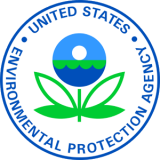08/17/2016
Contact Information:
Chris Whitley (whitley.christopher@epa.gov)
913-551-7394
Environmental News
FOR IMMEDIATE RELEASE
 (Lenexa, Kan., Aug. 17, 2016) - EPA Region 7 has reached a proposed settlement of Clean Water Act violations by the City of Columbia, Mo., involving pollutant discharges from the Columbia Landfill and Yard Waste Composting Facility. As part of the settlement, the city has agreed to pay a civil penalty of $54,396 and perform a Supplemental Environmental Project (SEP) project involving the construction of a wetland area at a cost of no less than $475,000.
(Lenexa, Kan., Aug. 17, 2016) - EPA Region 7 has reached a proposed settlement of Clean Water Act violations by the City of Columbia, Mo., involving pollutant discharges from the Columbia Landfill and Yard Waste Composting Facility. As part of the settlement, the city has agreed to pay a civil penalty of $54,396 and perform a Supplemental Environmental Project (SEP) project involving the construction of a wetland area at a cost of no less than $475,000. An EPA inspection in April 2014 found the landfill and composting facility, at 5700 Peabody Road in Columbia, discharged pollutants into Hinkson Creek that were in excess of its National Pollutant Discharge Elimination System (NPDES) permit limits. Hinkson Creek is currently on Missouri’s list of impaired waters for E. Coli and other unknown pollutants.
The facility was also found by EPA to have failed to meet its permit limits for biochemical and chemical oxygen demand, total suspended solids, and iron; and to have failed to maintain stormwater best management practices and implement good housekeeping procedures.
Under a proposed administrative settlement with EPA, Columbia has agreed to pay a $54,396 civil penalty, and build a wetland area that would serve as an additional level of containment and treatment for discharges from the facility. The construction of the wetland area, at a cost of no less than $475,000, will be designed to further reduce the quantity and concentration of pollutants from the landfill’s outfall, prior to their discharge into Hinkson Creek.
As part of a separate order from EPA, Columbia will submit a plan to EPA describing how the city will come into compliance with the Clean Water Act. The city will also submit quarterly updates, which will be posted along with discharge monitoring reports on the city’s website so the public can follow the city’s efforts and their effectiveness.
The Clean Water Act seeks to protect streams and wetlands that form the foundation of the nation’s water resources. Pollutants in stormwater can violate water quality standards, pose risks to human health, threaten aquatic life and its habitat, and impair the use and enjoyment of waterways. Protecting streams and wetlands is also part of adapting to climate change impacts like drought, stronger storms, and warmer temperatures.
The proposed settlement is subject to a 40-day public comment period before it becomes final. Information about submitting comments is available online.
# # #
About the Landfill
The
Columbia Sanitary Landfill operates using environmentally sound
engineering practices for disposal of municipal solid waste while
complying with state and federal regulations.
Methane
gas generated from the landfill is being converted to electricity at
the on-site bioenergy facility operated by the Water and Light
Department since June 2008.
A small vehicle trash drop-off was opened this winter for improved customer convenience and operational safety.
The
current disposal cell (Cell 5) is the second cell permitted to operate
as a bioreactor, where liquids are added to the waste to accelerate
decomposition, waste stabilization and gas production.
Plans
are underway to construct a voluntary wetland area, relocate the
Compost Facility elsewhere on site and design and construct an
Administration and Collection Operations Facility.
Rates (effective 10-01-2015 per Columbia Code of Ordinances Chapter 22-163)
- $44.00 per ton; $20 minimum charge
- $20.31 Appliances equipped with refrigerant, each
- $13.56 Appliances with no refrigerant, each
Products that can not be accepted at the Landfill
Per city ordinance, the city shall not
collect for disposal at its sanitary landfill, nor shall it accept for
disposal at its sanitary landfill, the following items:
- Hazardous waste
- Household hazardous waste
- Infectious waste which has not been rendered innocuous
- Lead-acid batteries
- Tires which have not been cut, chipped or shredded in accordance with RSMo chapter 260
- Major appliances*
- Waste oil from motor vehicles
Bioreactor Landfill Waste Stabilization
The technique, while not new in the
industry, is the first application of this technology in the state of
Missouri. Camp, Dresser & McKee, an international consulting firm,
provided the engineering services associated with the design and
construction of the landfill cell.
The primary differences in the bioreactor technique and the current practice are shown below.
Subtitle D "dry tomb"
|
Bioreactor Cell
|
|---|---|
| Compact waste and cover to reduce moisture infiltration | Fluff waste and add moisture to augment decomposition |
| Waste decomposes and settles more completely creating additional landfill volume | |
| Very slow decomposition over decades | Rapid waste stabilization of waste, within 5-10 years of placement, into an inert mass |
| Methane gas is generated over a longer period of time | Accelerated gas production over shorter period provides greater volumes for green energy |
Additional information on bioreactor landfills: http://www.epa.gov/garbage/landfill/bioreactors.htm
Disposal of Asbestos:
The city of Columbia Sanitary Landfill
accepts asbestos-containing material for disposal. Asbestos requires
special handling and the Asbestos Disposal Policy
should be adhered to in order to bring it to the Columbia landfill. To
arrange disposal of special materials such as asbestos, call
573-474-9145. Please print out and complete an Asbestos Disposal Formbefore bring asbestos products to the landfill.
Bulk Compost for Sale at the Landfill



